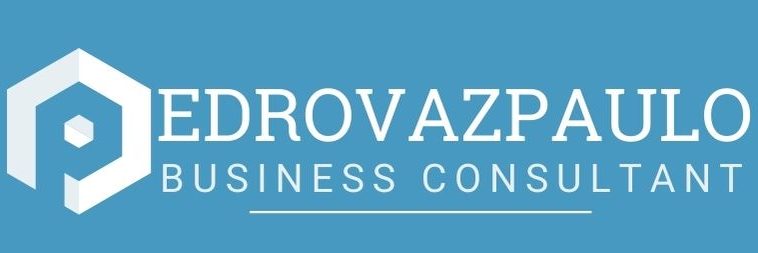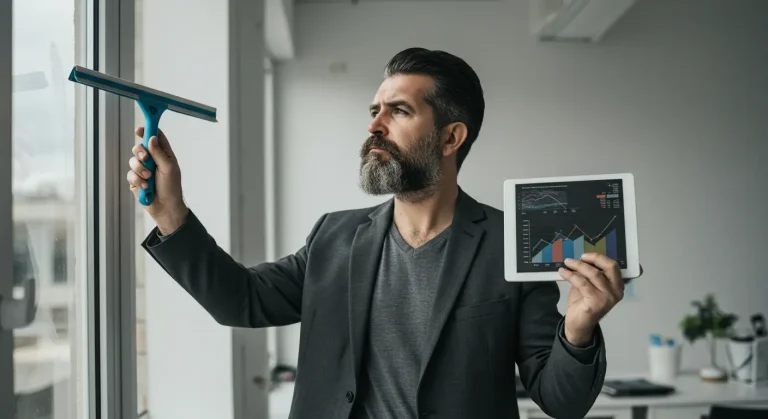As an entrepreneur, you might often find yourself in situations where you feel compelled to say ‘Yes’ to every opportunity that comes your way. Whether it’s meetings, collaborations, or new business opportunities, saying ‘Yes’ seems like the right thing to do.
However, you may have noticed that this leads to burnout, a lack of focus, and a drained energy reservoir. So, how can you protect your time and mental well-being? The answer lies in mastering the art of saying ‘No’.

Why Saying ‘No’ is Important for Entrepreneurs
As an entrepreneur, your time is one of your most valuable assets. You can’t afford to waste it on tasks that don’t align with your long-term vision or that drain your energy without offering substantial returns. Saying ‘No’ allows you to prioritize the things that truly matter—tasks and opportunities that move your business forward.
When you say ‘No’, you create the space to focus on what will actually make a difference to your success. Protecting your time means making intentional choices, avoiding distractions, and, above all, maintaining your mental clarity and focus.
If you’re looking for tools to help you improve decision-making, check out our Executive Coaching Program.
The Hidden Dangers of Saying ‘Yes’ Too Often
As entrepreneurs, we often feel the need to say ‘Yes’ to every opportunity that comes our way. This can stem from a fear of missing out or the desire to please others. However, overcommitment can lead to significant drawbacks.
The risks of constantly saying ‘Yes’ include:
- Burnout: The more you take on, the less energy you have for what matters most.
- Poor Focus: When your attention is divided between too many tasks, your productivity drops significantly.
- Missed Opportunities: Saying ‘Yes’ to everything might mean saying ‘No’ to better opportunities down the road.
A famous example is Steve Jobs, who learned the hard way that saying ‘Yes’ to too many things could dilute his focus. Over time, he became more selective, focusing only on projects that aligned with his core vision. This approach led to the creation of some of the most innovative products in the world.
How Saying ‘No’ Can Lead to Better Opportunities
By saying ‘No’, you’re not rejecting opportunities; you’re simply prioritizing the right ones. Protecting your time allows you to focus on business strategies that will lead to growth rather than spreading yourself thin across too many mediocre endeavors.
Examples of Opportunities That Deserve a ‘No’:
- Meetings that don’t align with your business objectives
- Social engagements that don’t contribute to your personal or professional growth
- Offers that don’t provide a significant return on investment
In essence, saying ‘No’ to the wrong opportunities allows you to say ‘Yes’ to the right ones.
Want to explore the impact of strategic decision-making in investment? Visit our Stock Investment Strategies.
The Psychology of Saying ‘No’ and Overcoming Guilt
It’s not easy to say ‘No’—especially when you’re used to saying ‘Yes’ to everyone. It’s common to feel guilty, thinking that you might disappoint someone or miss out on potential opportunities. But this guilt is often based on our fear of rejection or the need for approval.
To overcome this guilt:
- Acknowledge your feelings: Understand that feeling guilty is natural, but it doesn’t have to dictate your actions.
- Remind yourself of your priorities: Saying ‘No’ helps you focus on what’s truly important.
- Practice self-compassion: You’re allowed to protect your time and well-being.
Setting Boundaries and Saying ‘No’ with Confidence
Setting clear boundaries is an essential skill for any entrepreneur. Without boundaries, it’s easy to get swept up in the demands of others. Here are a few ways to say ‘No’ with confidence:
- Be assertive, not aggressive: State your reasons clearly and kindly, without feeling the need to justify everything.
- Don’t apologize unnecessarily: Saying ‘No’ is your right, so don’t feel the need to apologize for protecting your time.
- Be consistent: The more consistent you are with setting boundaries, the easier it becomes.
If you need assistance with refining your approach, our Operations Consulting services can help you streamline your decision-making process.
When and How to Say ‘No’: Practical Tips and Frameworks
There are several common situations where saying ‘No’ is not only necessary but crucial for your success:
- Declining non-essential meetings
- Saying ‘No’ to projects that don’t align with your business vision
- Turning down collaborations that demand too much of your time without delivering significant value
Here’s a framework you can use when you need to say ‘No’:
- Step 1: Acknowledge the request politely.
- Step 2: Express gratitude for the offer.
- Step 3: Provide a clear, brief explanation for why you can’t commit.
- Step 4: Offer an alternative if possible (e.g., referring them to someone else).
For further development of leadership skills, our Leadership and Executive Coaching can help you navigate these tough decisions.
Benefits of Saying ‘No’ on Productivity and Focus
Saying ‘No’ can significantly enhance your productivity. By eliminating distractions, you create more room for the activities that truly move your business forward.
In fact, studies show that people who learn to say ‘No’ experience:
- Better focus and concentration
- Improved mental health and well-being
- Greater work-life balance
This focus is what separates the highly successful entrepreneurs from the ones who struggle to keep up. It’s not about working harder, but working smarter.
Real-Life Examples of Entrepreneurs Who Mastered the Art of Saying ‘No’
Many successful entrepreneurs have mastered the art of saying ‘No’. For example, Warren Buffet is known for his ability to turn down most opportunities. He believes that saying ‘No’ to distractions allows him to focus on the investments that matter most.
By following their examples, you can avoid burnout and stay on track with your goals.
Conclusion
In conclusion, learning to say ‘No’ is one of the most powerful tools you can use to protect your time and mental energy. As an entrepreneur, your focus is your most valuable asset. By saying ‘No’ to distractions and non-essential tasks, you create the space you need to pursue the right opportunities and achieve lasting success.
Take Action: Start by saying ‘No’ to one thing today. Protect your time and focus on what truly matters for your business growth.
If you want to enhance your personal and business growth strategies, visit our Marketing Consulting page for more insights.
The source of this information is https://pedrovazpaulo.co/







